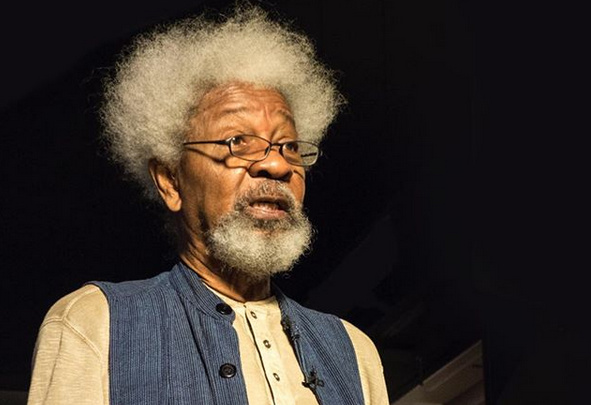Nigerian Nobel Prize winner, Akinwande Oluwole Babatunde Soyinka popularly known as Wole Soyinka, has turned 89 years.
The world-renowned professor was awarded the 1986 Nobel Prize in Literature, for “in a wide cultural perspective and with poetic overtones fashioning the drama of existence”.
He is the first sub-Saharan African to be honoured in that category.
SPONSOR AD
Below are some things to know about the icon:
- Soyinka was born into a Yoruba family in Abeokuta. In 1954, he attended Government College in Ibadan,[5] and subsequently University College Ibadan and the University of Leeds in England. After studying in Nigeria and the UK, he worked with the Royal Court Theatre in London.
- As an activist, in 1965, he seized the Western Nigeria Broadcasting Service studio and broadcast a demand for the cancellation of the Western Nigeria Regional Elections. In 1967, during the Nigerian Civil War, he was arrested by the federal government of General Yakubu Gowon and put in solitary confinement for two years, for volunteering to be a non-government mediating actor.
- In December 2017, Soyinka was awarded the Europe Theatre Prize in the “Special Prize” category,[20][21] awarded to someone who has “contributed to the realization of cultural events that promote understanding and the exchange of knowledge between peoples”.
- After becoming Chair of Drama at the University of Ibadan, Soyinka became more politically active. Following the military coup of January 1966, he secretly and unofficially met with the military governor Chukwuemeka Odumegwu Ojukwu in the Southeastern town of Enugu (August 1967), to try to avert the Nigerian civil war. As a result, he had to go into hiding
Doctors stage walkout in UK health service’s biggest strike
Dele Alli reveals how childhood abuse is affecting his career
- He was imprisoned for 22 months[58] as civil war ensued between the Federal government of Nigeria and the Biafrans. Though refused materials such as books, pens, and paper, he still wrote a significant body of poems and notes criticising the Nigerian government while in prison.
- Despite his imprisonment, his play The Lion and The Jewel was produced in Accra, Ghana, in September 1967. In November that year, The Trials of Brother Jero and The Strong Breed were produced in the Greenwich Mews Theatre in New York City. Soyinka also published a collection of his poetry, Idanre and Other Poems, which was inspired by his visit to the sanctuary of the Yorùbá deity Ogun, whom he regards as his “companion” deity, kindred spirit, and protector.

 Join Daily Trust WhatsApp Community For Quick Access To News and Happenings Around You.
Join Daily Trust WhatsApp Community For Quick Access To News and Happenings Around You.


